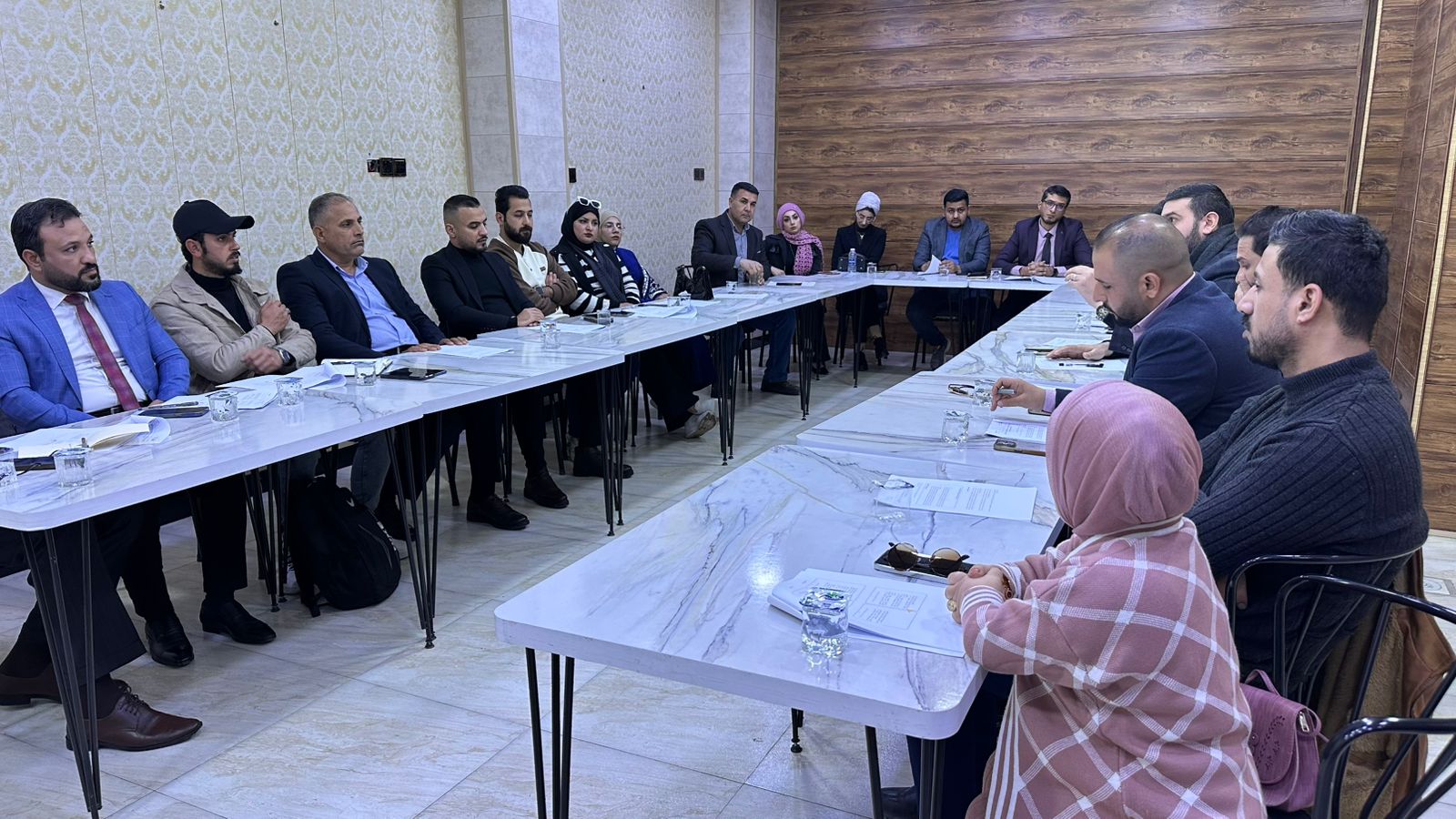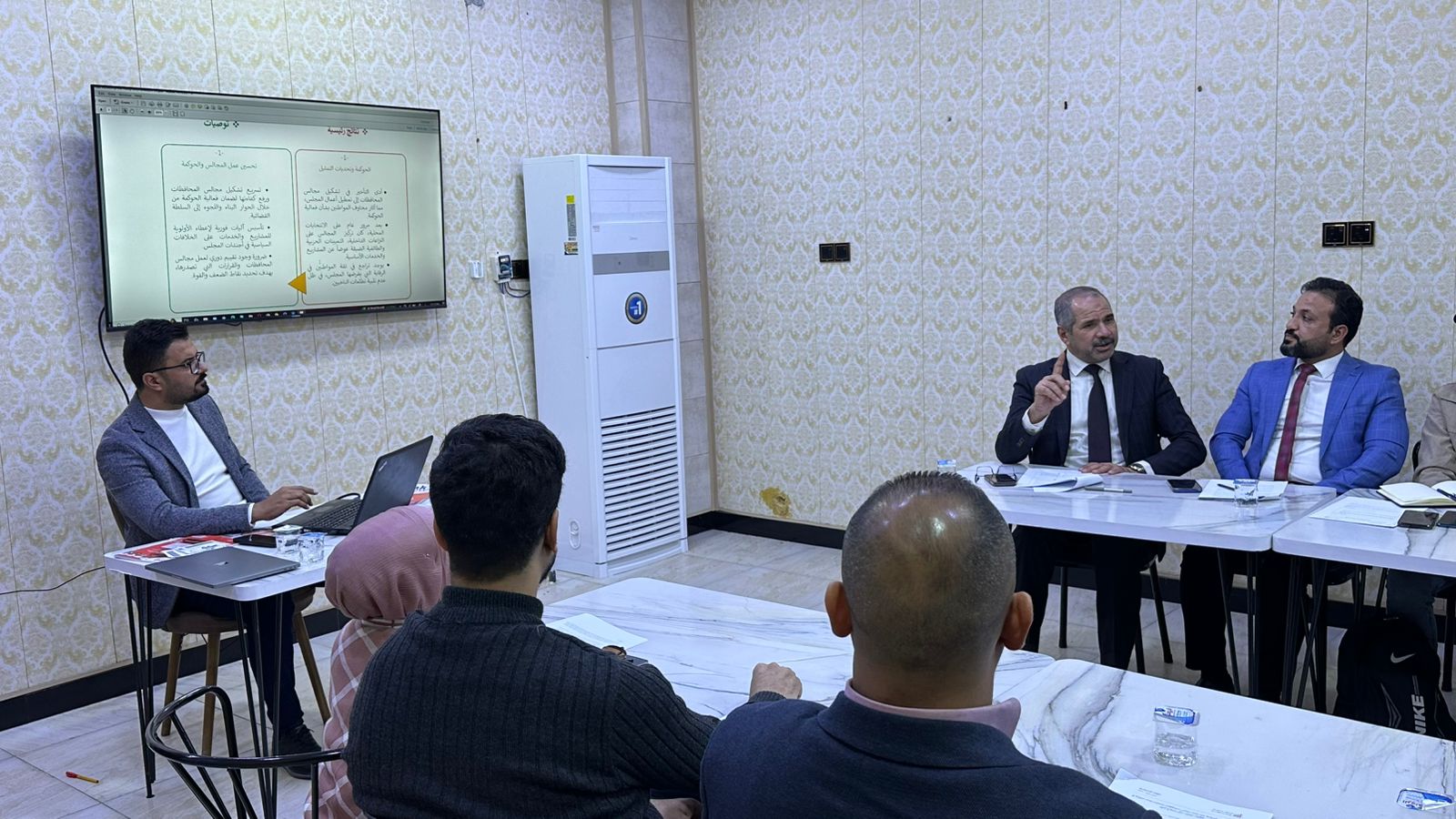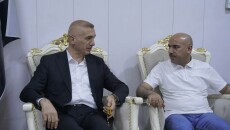"The findings and recommendations of the report accurately reflect reality, and the government should take them into account and act upon them," said Furat Tamimi, one of the participants in an open discussion on the latest budget report.
The discussion took place on December 25, 2024, in the city of Baquba, the center of Diyala province, with 25 university professors, activists, lawyers, civil society organizations, and locals in attendance.
Although invitations were extended to over ten members of the Diyala provincial council, none of them attended for various reasons.
Ali Anbagi, the representative of the “Budget is your Right” project in Diyala, chaired the meeting and presented a summary of the report on monitoring and following up on budget issues in Diyala, Kirkuk, Nineveh, and Salahaddin provinces.
Furat Tamimi, the secretary general of Al-Hikma (Wisdom) National Movement and a former Iraqi parliamentarian, stated after the discussion that the budget-related matters raised are crucial, touching on several important issues, particularly the equitable distribution of projects among the province's residents.
"The government can rely on the findings and recommendations of the report summary to address the identified shortcomings within the scope of this project," Tamimi added. He expressed concern about the distribution of positions based on familial ties (nepotism) in the past, emphasizing that provincial councils should be formed to serve impartially, without favoring relatives or quotas.
In addition to detailing the monitoring and follow-up process of the council, the report outlines the challenges facing the provincial council and budget process through ten findings, along with a set of recommendations as potential solutions.
The 15 members of the Diyala Council were first divided into two teams: The Team of Eight and the Team of Seven. The two teams include a mixture of Shiite and Sunni parties seeking to secure the largest number of senior positions in the local government in their favor.
Later, a new coalition was formed by nine out of 15 members, excluding the Patriotic Union of Kurdistan PUK, which did not participate. The other parties were the same ones that held an emergency meeting last August in Baghdad, resulting in the election of the council speaker, governor, and deputies after months of controversy.

The findings highlight the consequences of struggles in forming local governments and distributing positions within the council, the risk of unjust budget and project distribution, and the disregard for the public opinion and interest.
The recommendations stress the importance of the provincial council focusing on citizens' current needs, distributing the budget fairly, enhancing transparency, avoiding party conflicts, encouraging citizen participation, and providing access to information regarding service project discussions.
Muhannad al-Zubeidi, a human rights activist who participated in the Diyala discussion, emphasized the importance of similar discussions and meetings in monitoring the provincial council's work and enhancing its capacity, stating that political conflicts among factions are still a concern.
The first council session after the elections took place on February 5, but due to disputes among factions, it remained open until August 1 at the Rashid Hotel in Baghdad. The election process for speaker, deputy speaker, governor, and two deputies led to a boycott, and protesters blocs returned to the council in September. However, the election of administrative unit heads and the recent removal of the council head reignited divisions within the council.
Diyala Provincial Council consists of 15 seats, four of which are allocated to women. Diyala province is home to 1.6 million people, 90,000 of whom live in the center of the Khanaqin dominantly Kurdish district, according to estimates by the Central Bureau of Statistics for 2019.
Diyala province consists of six districts and 15 sub-districts, including various disputed areas under Article 140 of the Iraqi constitution, such as Khanaqin district.
The report's summary is based on field observations of the council, surveys conducted in all four provinces of Kirkuk, Nineveh, Diyala, and Salahaddin, assessments of the legal framework, eight focus groups, and over 15 interviews with council members, local decision-makers, and various segments of society.
The draft summary of the report has been shared with parliamentarians, provincial council presidencies, councilors, academics, civil society activists, and journalists for feedback and review before the final version is published.
"Budget is your right" is a significant project by the KirkukNow and Wadi, German-Iraqi NGO, with assistance from the National Democracy Institute - NDI - Iraq, aims to monitor the roles of provincial councils in Kirkuk, Nineveh, Diyala, and Salahaddin, promoting transparency in budget matters and fostering dialogue and understanding among the people, officials, civil society, and the media.
*This story has been produced as part of the 'Budget is Your Right' initiative, with support from the National Democratic Institute (NDI).






